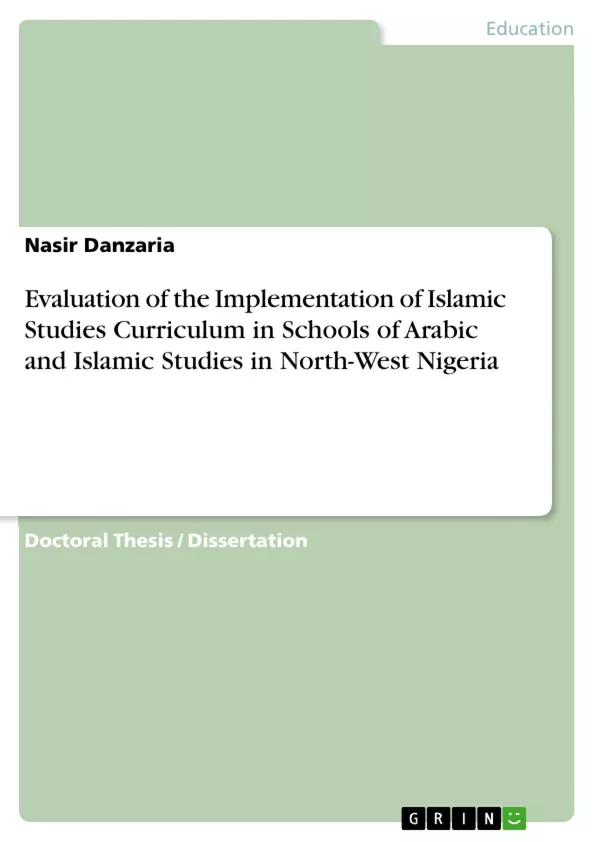Chapter 1: Introduction
This chapter provides a background to the study, highlighting the significance of Islamic Studies education in North-West Nigeria. It outlines the problem statement, research questions, objectives, and the scope of the study. The chapter also establishes the rationale for the research, emphasizing the need for an evaluation of the existing curriculum to ensure its effectiveness and relevance to the needs of students and society. The significance of the study is linked to improving the quality of Islamic education and contributing to the body of knowledge on curriculum implementation in similar contexts.











